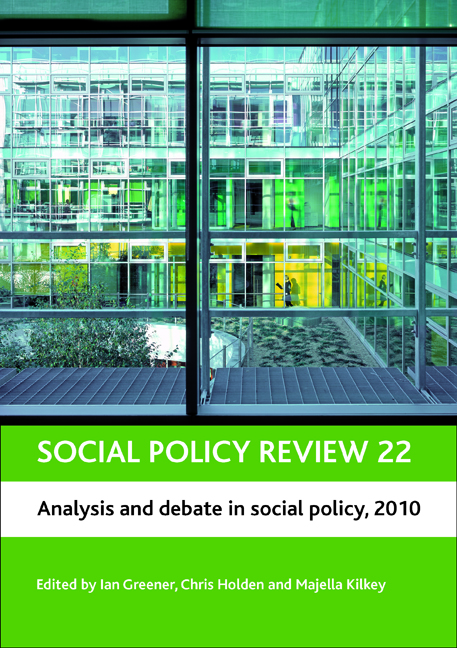thirteen - Responding to unhappy childhoods in the UK: enhancing young people's ‘well-being’ through participatory action research
Published online by Cambridge University Press: 01 September 2022
Summary
Background
There is a wealth of evidence pointing to a decline in young people's emotional ‘well-being’ in the UK – particularly among the most disadvantaged – in the last 20 years (Collishaw et al, 2004). The 2007 United Nations Children's Fund's (UNICEF) assessment of children's and young people's well-being in 21 ‘advanced’ nations placed the UK bottom (UNICEF, 2007). A similar study of young people's well-being in 2009 for the Child Poverty Action Group (CPAG) placed Britain 24th out of 29 European states (CPAG, 2009). Other studies suggest a decline in young people's well-being in relation to educational experience (Primary Review, 2007), employment opportunities (Shaheen, 2009), mental health problems (Revill and Lawless, 2007), access to public space (Mayall, 2001), trust and belonging (NEF, 2009), age discrimination (Davies, 2009) and the pressurised socio-cultural context caused by a consumerist society (Layard and Dunn, 2009). At the same time, a commitment to promoting well-being is embedded in the stated aims of all government departments (UK government website, 2006), a commitment that is shared by the Conservative opposition (Walker, 2007). Despite this apparent consensus, however, ‘well-being’ remains a contested concept that can be understood and represented in different ways. Because of this, the need for well-being research is recognised within the social policy field (nef, 2004). To date, much of the existing literature has been focused on evaluating the impact of health and social care services on well-being (Bauld et al, 2006). Arguably, well-being is only partially affected by such provision and is something pursued and experienced within a broader socio-cultural context (Wilkinson, 2005; Camfield and Crivello, 2009). More specifically, our sense of well-being and the strategies we deploy to attain it will be socially and culturally determined. Consequently, understanding well-being requires consideration of our aspirations, the societal preconditions perceived necessary to achieve these and the socio-cultural factors shaping our perceptions (McGregor, 2006).
With these concerns in mind, the central aim of this chapter is to contribute to current debates within well-being studies (nef, 2004; van Praag and Ferrer-i-Carbonell, 2004; Layard, 2005; Dolan et al, 2006; McGregor, 2006; Hothi et al, 2008; The Young Foundation, 2008) by mapping out a novel and radical social policy research agenda for exploring the welfare aspirations of disadvantaged young people (13-to 19-year-olds), and the strategies that might be deployed to achieve these.
- Type
- Chapter
- Information
- Social Policy Review 22Analysis and Debate in Social Policy, 2010, pp. 291 - 316Publisher: Bristol University PressPrint publication year: 2010



